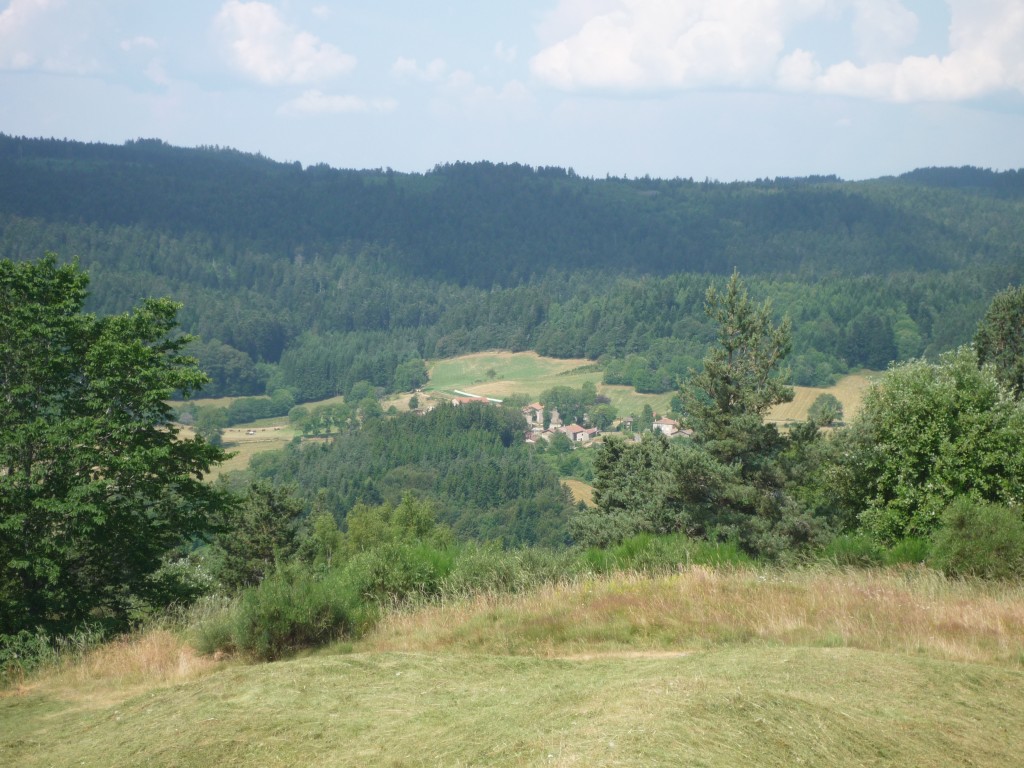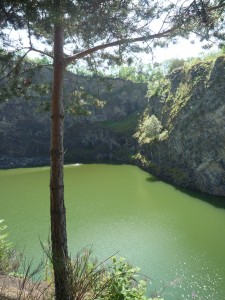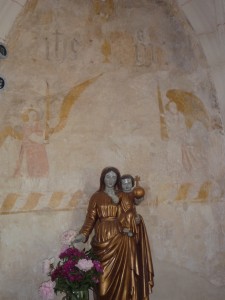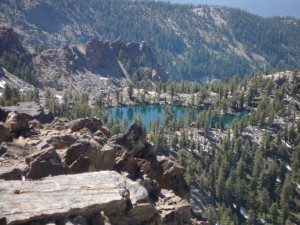Among the books I packed for summer vacation is a second-hand 1930 edition of Willa Cather’s Death Comes For the Archbishop.
If you’re not familiar with this novel it recounts the story of two French Jesuits, Father Latour and Father Vaillant, from the Puy de Dôme who embark on a journey as missionaries in the United States’ newly acquired territory of New Mexico. This is back in 1848. I’ve read Death Comes For the Archbishop now three times and it remains one of my favourite books, perhaps because the tale reads in some obscure but fundamental way as my own in reverse. From the west, I’ve moved to France. Of course I’m not a missionary, but writers, like priests, are grateful for converts.
We’ve been in the Puy de Dôme for the past six days and I’ve often thought of Willa’s two padres and the contrast between France’s groomed, well-ordered countryside and America’s Western landscapes. Here, in the Auvergne, you can climb a volcano and lunch on its lip at a jasserie. (photo of Monpeloux volcano, now a lake, and the Coq Noir Jasserie)
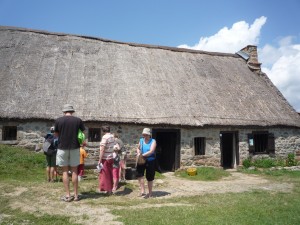
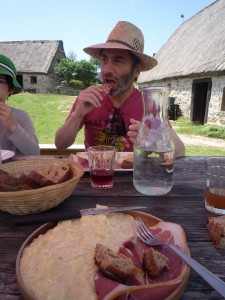
We ate at one called Le Coq Noir and had fourme d’Ambert cheese, smoked country ham, thick sour dough bread and piat, a dish of slow-cooked potatoes in cream, followed by coffee and blueberry tart. And did I mention wine? In the Sierra Nevadas of California, a backpacker must have the necessary amount of dehydrated food and whisky in her pack and the know-how to keep it out of reach of bears (they’re maudlin when drunk). Once you embark on the Muir trail, you’ve left the amenities of civilization. You are on your own.
Willa’s priests find themselves at the mercy of harsh, unwelcoming but bewilderingly beautiful landscapes such as their Auvergnat imaginations could never have conjured; there they encounter Navajos, Pueblos, debouched Mexican priests, a serial killer and even Kit Carson, the legendary frontiersman and Indian fighter. This book meditates in the heat of action; its tone is formal yet homey, makes lyrical bounds yet feels factual. I have never read anything like it.
At the end of Father Latour’s life he considers returning to the Auvergne but realizes he cannot. His reflections are among the most beautiful in the book: “In New Mexico he always awoke a young man…His first consciousness was a sense of the light dry wind blowing in through the windows, with the fragrance of hot sun and sage-brush and sweet clover; a wind that made one’s body feel light and one’s heart cry, ‘To-day, to-day,’ like a child’s. Beautiful surroundings, the society of learned men, the charm of noble women, the graces of art, could not make up to him for the loss of those light-hearted mornings of the desert, for that wind that made one a boy again. He had noticed that this peculiar quality in the air of new countries vanished after they were tamed by man and made to bear harvests…The moisture of the plowed land, the heaviness of labour and growth and grain-bearing utterly destroyed it; one could breathe that only on the bright edges of the world, on the great grass plains or the sage-brush desert.”
Tomorrow morning we are leaving for California, to the Fresno Fry, then the High Sierras where the air bristles dry, cool, pine-scented.
Bonnes vacances à tous et à toutes.
